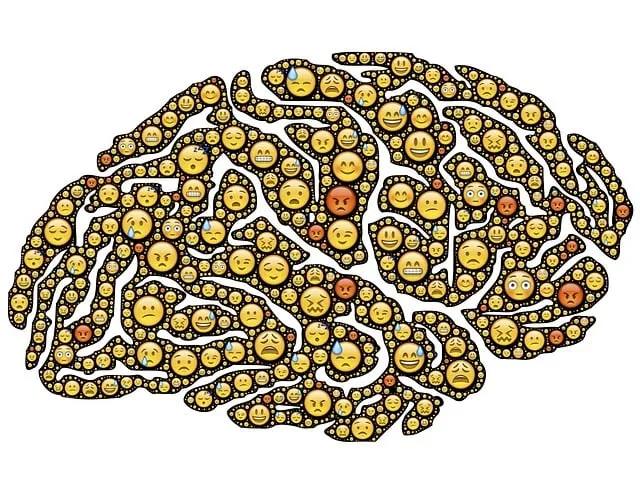Program evaluation is vital in mental healthcare, and organizations like Kaiser Permanente use systematic assessments to improve services, ensuring they meet individual needs. Their dedicated mental health hotline in Greenwood Village offers accessible, confidential counseling with a focus on cultural competency training. Phone-based assessments revolutionize program evaluations, providing convenience for clients, especially in remote areas. By tracking participant satisfaction and improvements (e.g., emotional intelligence), these programs enhance coping skills and overall well-being. The Kaiser Permanente mental health phone number in Greenwood Village has become an innovative model, prioritizing mental wellness through comprehensive risk assessment and community support systems, setting a global standard for effective mental healthcare.
Mental wellness program evaluation is a critical component of modern healthcare, ensuring that services meet evidence-based standards. This article explores effective methods for evaluating mental health initiatives, highlighting successful strategies like those employed by Kaiser Permanente and illustrated by the Greenwood Village case study. We delve into the significance of phone-based assessments and the metrics used to gauge program effectiveness, offering insights tailored to the evolving landscape of mental health care, including Kaiser Permanente’s commitment to accessible support via their mental health phone number.
- Understanding the Importance of Program Evaluation in Mental Health Care
- Kaiser Permanente's Approach to Mental Wellness Programs
- The Role of Phone-Based Assessments and Interventions
- Evaluating Effectiveness: Metrics and Measurement Tools
- Case Study: Greenwood Village—A Success Story in Mental Health Program Evaluation
Understanding the Importance of Program Evaluation in Mental Health Care

Program evaluation is a vital component of mental health care, allowing for continuous improvement and ensuring that services meet the unique needs of individuals seeking support. It involves systematically assessing the effectiveness, efficiency, and impact of mental wellness programs, offering valuable insights to healthcare providers and policymakers. By evaluating these initiatives, we can identify what works best in various settings, such as community outreach programs or phone-based support like the Kaiser Permanente mental health hotline in Greenwood Village.
This process is essential for holding mental health care services accountable and promoting evidence-based practices. It enables professionals to measure the success of interventions, including coping skills development and conflict resolution techniques, and make data-driven decisions. Through evaluation, we can uncover areas for improvement, enhance service delivery, and ultimately better support those facing mental health challenges.
Kaiser Permanente's Approach to Mental Wellness Programs

Kaiser Permanente, a renowned healthcare organization, has implemented comprehensive mental wellness programs that prioritize accessible and personalized care. Their approach to mental health support is multifaceted, focusing on both individual and community well-being. One key element of their strategy involves using technology to bridge the gap between patients and professional help. The Kaiser Permanente mental health phone number in Greenwood Village serves as a central point of contact, offering confidential counseling sessions and guidance to individuals seeking assistance.
The organization places significant emphasis on building empathy within their healthcare system. Through specialized training programs, they equip healthcare providers with cultural competency skills, enabling them to deliver more nuanced care. This includes learning effective communication techniques and understanding the impact of social determinants of health. Additionally, Kaiser Permanente integrates various evidence-based Stress Reduction Methods into their programs, recognizing that stress management is a vital component of overall mental wellness.
The Role of Phone-Based Assessments and Interventions

Phone-based assessments have emerged as a valuable tool in mental wellness program evaluations, offering accessibility and convenience for both service providers and clients. Organizations like Kaiser Permanente’s mental health phone number in Greenwood Village highlight this trend, where trained professionals conduct initial screenings and ongoing monitoring using telephonic methods. This approach is particularly beneficial for reaching individuals in remote areas or those with limited mobility, ensuring they can access support without barriers.
Self-Awareness Exercises and Compassion Cultivation Practices can be effectively delivered and assessed over the phone. Service providers can guide clients through mindfulness techniques, emotional regulation exercises, and practices fostering empathy and understanding. Moreover, phone interventions allow for regular check-ins, enabling rapid response to changes in an individual’s mental health status. Integrating a Community Outreach Program Implementation strategy through phone assessments facilitates the identification of at-risk populations and tailored interventions, ultimately enhancing overall program effectiveness.
Evaluating Effectiveness: Metrics and Measurement Tools

Evaluating the effectiveness of mental wellness programs is crucial to ensuring their success and impact. Metrics and measurement tools play a pivotal role in understanding the progress and outcomes of these initiatives, especially when aimed at improving mental health in healthcare settings. Organizations like Kaiser Permanente, through their mental health phone services in Greenwood Village, have recognized this importance and implemented various assessment methods.
One key metric is tracking participant satisfaction and improvements in specific areas targeted by the program. This includes measuring changes in emotional intelligence, a vital aspect of burnout prevention strategies for healthcare providers. Additionally, regular assessments can help identify areas where confidence boosting interventions are most needed. By combining quantitative data with qualitative feedback, mental wellness programs can be fine-tuned to better cater to the unique needs of their participants, ultimately enhancing overall well-being.
Case Study: Greenwood Village—A Success Story in Mental Health Program Evaluation

In the heart of a bustling metropolitan area lies Greenwood Village, a testament to innovative mental wellness program evaluation methods. This community-centric initiative, supported by Kaiser Permanente’s dedicated mental health phone number, has become a model for successful integration of care. By leveraging a multi-faceted approach, Greenwood Village has enhanced coping skills development and risk management planning for mental health professionals.
The village’s strategy involves comprehensive risk assessment for mental health professionals, ensuring that support systems are in place to mitigate potential risks. This proactive stance has led to remarkable improvements in patient outcomes, fostering an environment where mental wellness is prioritized. Through collaborative efforts, Greenwood Village continues to revolutionize how we approach mental health services, setting a standard for communities worldwide.
Mental wellness program evaluation is a vital component of modern healthcare, ensuring that resources are allocated effectively and positive outcomes are achieved. As demonstrated by Kaiser Permanente’s innovative approach and the success of Greenwood Village, combining phone-based assessments with comprehensive metrics offers a powerful tool for measuring mental health program effectiveness. By utilizing these strategies, healthcare organizations can enhance patient care, improve access to services, and ultimately create a more robust and responsive mental health support system, as evidenced by the positive impact of the Kaiser Permanente mental health phone number and the Greenwood Village case study.






